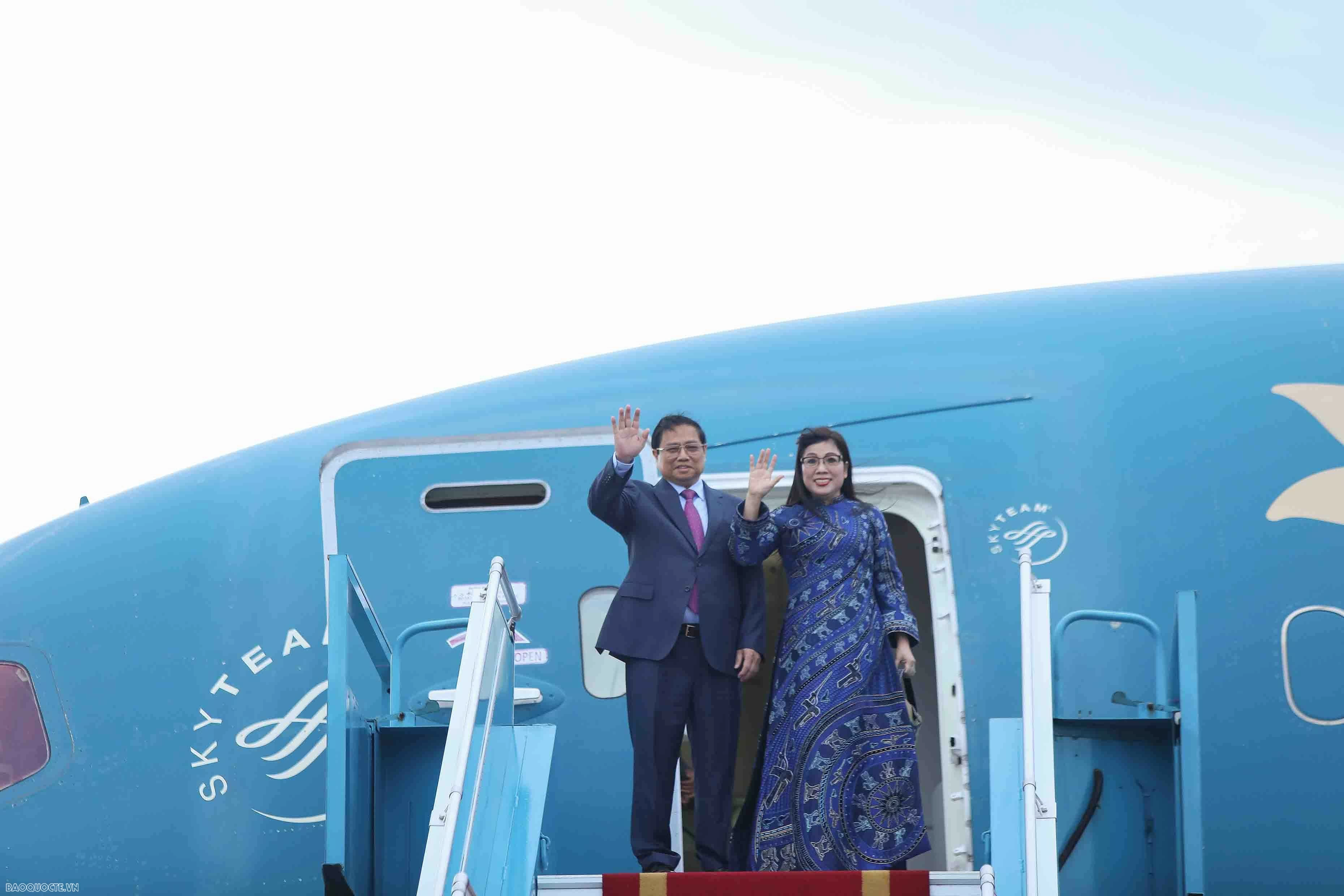
Vietnamese Ambassador highlights promising future of Vietnam-Qatar ties
Latest
 |
| Prime Minister Pham Minh Chinh and his Spouse left Hanoi to begin a trip to the UAE, Qatar and Saudi Arabia. (Photo: Nguyen Hong) |
Ambassador Hiep said this is the first visit by a Vietnamese Prime Minister to the Middle Eastern nation in 15 years. The visit, coming 12 years after the Emir of Qatar's high-level visit to Vietnam, aims to realise the 13th National Party Congress's foreign policy and is in line with the 2016-2025 scheme to bolster ties between Vietnam and the Middle East-Africa region.
By choosing Qatar as a destination of his tour to the Gulf region, Prime Minister Chinh demonstrates Vietnam's recognition of Qatar's potential and role in the Middle East and its commitment to fostering a robust and multifaceted partnership.
The visit promises to enhance political trust and open a new chapter in the bilateral ties, particularly by attracting Qatari investment into Vietnam and pave the way for Vietnamese goods and services to access the regional and Qatari markets, creating a win-win scenario for both nations.
Leaders of both countries are set to discuss ways to enhance cooperation in the fields of investment, energy, aviation, agriculture, industry and food security, while stepping up people-to-people exchanges, and partnerships in education, tourism, culture, arts and sports.
Prime Minister Chinh’s agenda includes talks with Qatari PM and Minister of Foreign Affairs Sheikh Mohammed bin Abdulrahman Al-Thani, and meetings with with senior Qatari leaders, key economic officials, major Qatari corporations and enterprises.
The Ambassador highlighted energy and renewable energy as a key cooperation area. With abundant oil and gas resources and financial and technological potential, Qatar can cooperate with Vietnam in technology transfer and energy projects, especially in renewables. Moreover, Vietnam's burgeoning economy, attractive investment climate and open-door policies present lucrative opportunities for Qatari investors in the fields of manufacturing, agriculture and services.
Ranked among the top 40 economies worldwide and being one of the top 20 global nations in terms of trade turnover, Vietnam serves as a crucial link in 16 free trade agreements (FTAs) involving 60 major economies in the region and the world, making it a preferred investment destination among emerging and developing countries in Asia. It is also fully equipped and primed to become an important partner of Qatar.
In the Halal industry, Vietnam is actively pursuing a strategy to boost international cooperation through 2030, while Qatar has introduced the Halal Livelihoods programme aiming to establish itself as a global hub for Halal products in the near future.
In education and research, the potential for exchange programmes for students and lecturers, as well as joint scientific research, could enhance the competitiveness and capabilities of both countries.
Regarding tourism and culture, Hiep suggested the two nations hold cultural exchanges and tourism promotion events to raise mutual understanding and collaboration.
Despite stiff competition from countries with similar export products and strong footholds, he advised Vietnamese firms to focus on goods in demand in Qatar, such as farm produce, food, electronics, apparel, footwear and machinery. To enhance competitiveness, exporters should consider pricing, taste diversity and product design, while exploring the market firsthand to tailor their strategies to local preferences.
With both countries committed to opening markets and facilitating goods' access, the stage is set for more favourable policies that foster business and investment activities. Beyond existing cooperation mechanisms, new tailored mechanisms in labour, trade, and investment are being explored to deepen and expand the bilateral relations substantively, he concluded.











